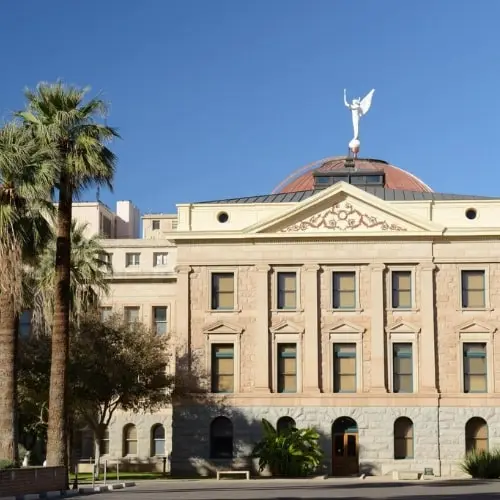Trailer Interchange Coverage
Contact our trailer interchange coverage expert for your business needs.
Overview
Trailer interchange coverage is a type of coverage designed for trucking companies and transporters that use trailers they do not own to haul cargo.
It provides financial protection against physical damage to the non-owned trailer while it is under the policyholder’s control, pursuant to a trailer interchange agreement.
This agreement is a contract that assigns responsibility for the trailer to the transporter during the period they are using it.
What Is a Trailer interchange agreement ?
A Trailer Interchange Agreement is a contract between two parties involved in the transportation industry, typically trucking companies or independent truck operators, where one party agrees to transfer a trailer to another party for the purpose of hauling cargo. This agreement clearly outlines the responsibility for the trailer, including its maintenance and insurance requirements, while it is in the possession of the party receiving the trailer.
Importance of Trailer Interchange Agreements
1. Liability Clarification
These agreements specify who is responsible for damages to the trailer during the interchange period. This clarity helps prevent disputes between parties over damage responsibilities.
2. Financial Protection
By defining who is liable for damages, each party can ensure they have the appropriate insurance coverage, such as trailer interchange insurance, to protect against potential financial losses.
3. Operational Efficiency
Trailer interchange agreements facilitate smoother operations in the transportation and logistics industry by allowing companies to share trailers. This can lead to more efficient use of equipment and resources, reducing empty miles and improving service times.
4. Compliance
In many cases, regulatory and contractual obligations require such agreements to ensure that all parties involved have the necessary insurance and liability coverage.
5. Risk Management
These agreements are a critical component of risk management strategies for businesses that rely on the use of trailers owned by others. They help mitigate the risk of unexpected costs arising from accidents or damages.
Businesses eligible for trailer interchange coverage
Businesses eligible for trailer interchange coverage typically operate within the transportation, logistics, and trucking sectors, engaging in activities that require the use of trailers they do not own.
- Trucking Companies
- Freight Forwarders
- Logistics Companies
- Intermodal Operators
- Leasing Companies
- Independent Owner-Operators
Coverage for trailer interchange coverage
Trailer interchange insurance provides coverage for physical damage to non-owned trailers under a trailer interchange agreement. This type of insurance is crucial for businesses that use trailers they don't own to transport goods. The coverage typically includes:
- Collision Damage: Covers damage to the trailer resulting from a collision with another vehicle or object.
- Comprehensive Coverage: Protects against damage from non-collision incidents, such as fire, theft, vandalism, or severe weather.
- Fire and Theft with Combined Additional Coverages (CAC): Specifically covers losses from fire, theft, and certain other perils that are not collision-related.
- Vandalism: Offers protection against damage caused by vandalism.
- Explosion: Covers damages resulting from explosions.
- Lightning: Provides coverage for damages caused by lightning strikes.
Special challenges for interchange coverage
Special challenges for trailer interchange coverage arise from the unique nature of the coverage and the operational complexities of the trucking and transportation industry.
These challenges can impact both the cost and the effectiveness of the insurance for businesses. Key challenges include:
1. Determining Liability
Establishing who is at fault for damages can be complicated, especially when multiple parties are involved. The terms of the trailer interchange agreement play a crucial role, but determining liability still requires clear documentation and sometimes investigation.
2. Valuation of Trailers
The value of trailers can vary widely, affecting how much coverage is necessary. Insurers need accurate valuations to set premiums and limits, while businesses must ensure they're not underinsured or paying for excessive coverage.
3. High Deductibles
To manage risk, insurers might require high deductibles for trailer interchange coverage. While this can lower premiums, it also means businesses face higher out-of-pocket costs when a claim is filed.
4. Varied Coverage Needs
The diverse nature of cargo and routes can necessitate different levels of coverage. For instance, trailers transporting hazardous materials or operating in areas prone to severe weather may need more comprehensive policies.
5. Compliance with Regulations
State and federal regulations can affect trailer interchange operations and insurance requirements. Staying compliant requires businesses to be continually updated on relevant laws, which can be both time-consuming and challenging.
Liability insurance and its requirements
Liability insurance is essential for businesses, especially those in the transportation sector, as it covers the costs associated with damage or injury to others caused by the insured party.This insurance protects against other crucial risks.
Requirements for Liability Insurance:
- Minimum Coverage Levels: The government mandates minimum coverage levels for liability insurance, especially for commercial operations. These requirements can vary by state and the type of operation like hazardous materials transporters need higher coverage limits.
- FMCSA Requirements: For interstate trucking operations, the Federal Motor Carrier Safety Administration (FMCSA) sets specific liability insurance minimums, which can range from $750,000 to $5,000,000 based on what is being transported.
- Contractual Requirements: Apart from government regulations, businesses may have contractual obligations that specify certain liability insurance requirements. These can be more stringent than state or federal mandates.
- Proof of Insurance: Businesses must provide proof of liability insurance, such as a Certificate of Insurance (COI), to regulatory authorities, clients, or partners as required.
- Continuous Coverage: It's essential to maintain continuous coverage without lapses. Failing to do so can result in fines, penalties, or the revocation of business licenses and permits.
How much does trailer interchange coverage cost?
The cost of trailer interchange coverage varies widely based on several factors.
Trailer Value
The higher the value of the trailer, the more expensive the insurance will be since the potential payout in the event of a claim is greater.
Coverage Limits
The amount of coverage you choose will directly affect the premium. Higher limits provide more protection but come at a higher cost.
Deductible
Policies with higher deductibles typically have lower premiums since the policyholder is taking on more financial responsibility in the event of a claim.
Operating Region
The areas where the trailers operate can influence the cost. Regions prone to severe weather, high theft rates, or other risks may see higher premiums.
Claim History
A business with a history of frequent claims may face higher premiums due to the perceived increased risk.
Type of Cargo
Hauling hazardous materials or high-value goods can increase the cost due to the increased risk of damage or loss.
Frequency of Use
The more frequently trailers are exchanged or utilized, the higher the potential risk, possibly leading to higher insurance costs.
Our Insurance Services States

Nevada

Texas

Arizona

California
Contact
Our team at E360 is here to provide the guidance and support you need. With a deep understanding of the transportation and logistics industry, we’re equipped to tailor insurance solutions that align with your unique operational requirements and risk exposures.
Call us at +18888626750 or Fill out the form here.
Our Reviews
We Insure Your Future

